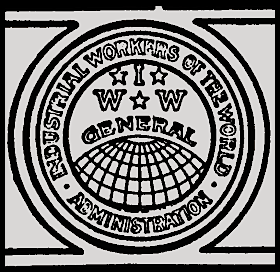It should be encouraging for workingmen
to see women enter their ranks and,
shoulder to shoulder, fight for economic freedom.
-Sophie Beldner Vasilio
Hellraisers Journal: Thursday April 30, 1908
Sophie Beldner Vasilio on Women and Industrial Unionism
On Tuesday we republished an article from The Industrial Union Bulletin of April 25th of this year, written by Sophie Beldner Vasilio, on the topic of Women and the I. W. W. Today we republish an earlier work by the same author on the topic of Women and Industrial Unionism.
From The Industrial Union Bulletin of August 3, 1907:
Work for Women in Industrial Unionism
To give an instance of the solidarity prevailing amongst women I shall have to talk of my own experience.
Working in New York in the garment industry with women mostly, here is what I observed. Twice a year, about the summer and winter season, their discontent was heard. Usually the piece workers were the ones that kicked, the prices being cut in slack time, and the new styles paying so little that it was necessary to organize in order to get even less than they asked for.
Twice a year three or four girls would get together to talk about organizing. Then these girls would start to talk to the rest of them about it. All would promise to attend a meeting for the purpose of organizing. Then they would appeal to the walking delegate of the waist makers’ union to organize them.
The meeting announced, only a few would make their appearance, the rest of them giving all sorts of excuses for not attending it. Still we would be organized, as few of we were. The demand for the prices was sent to the employer through the business agent, usually being compromised. About two or three months after the settlement, dues paying was postponed for a while by most of them, then they would say frankly: “We have no use for the union. We’re going to get married before long it’s no use paying dues to the union.”
Working in San Francisco, the City of Unionism, a Mexican women and myself began to talk about organization. One of the girls gave the definition of unionism thus: “To pay fines when you don’t parade on Labor Day or when you don’t attend the meetings, and besides, to pay dues for nothing.”

